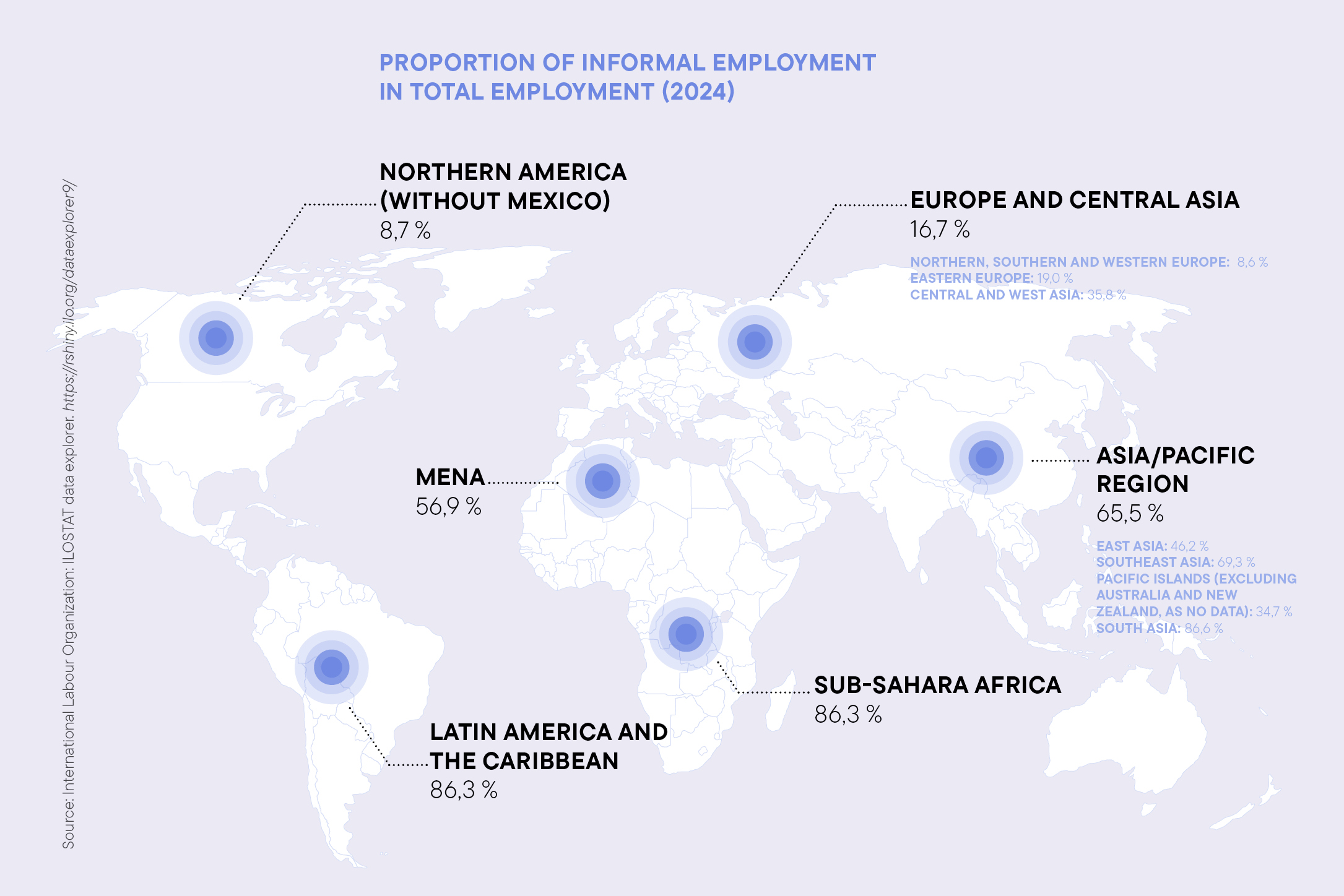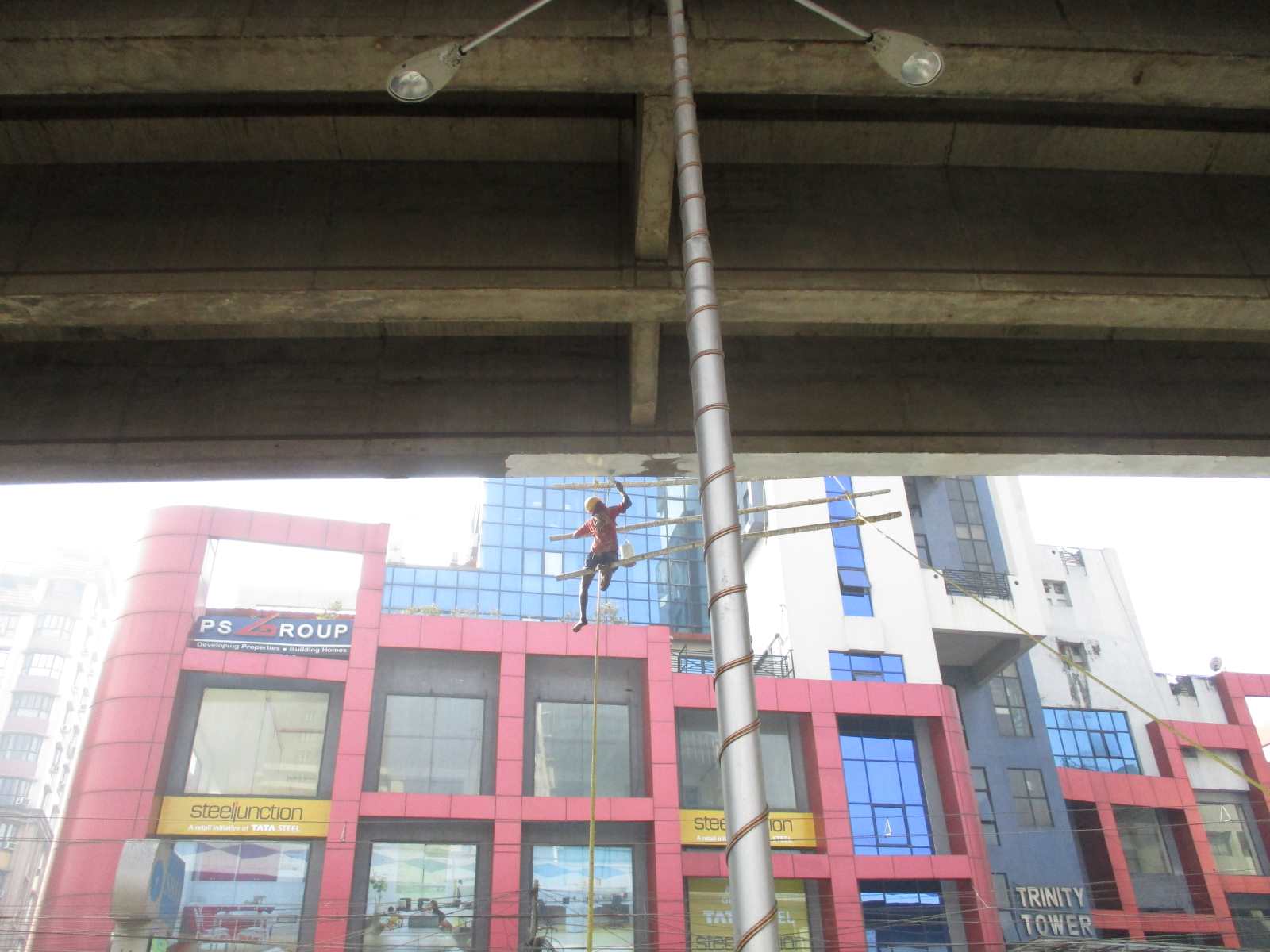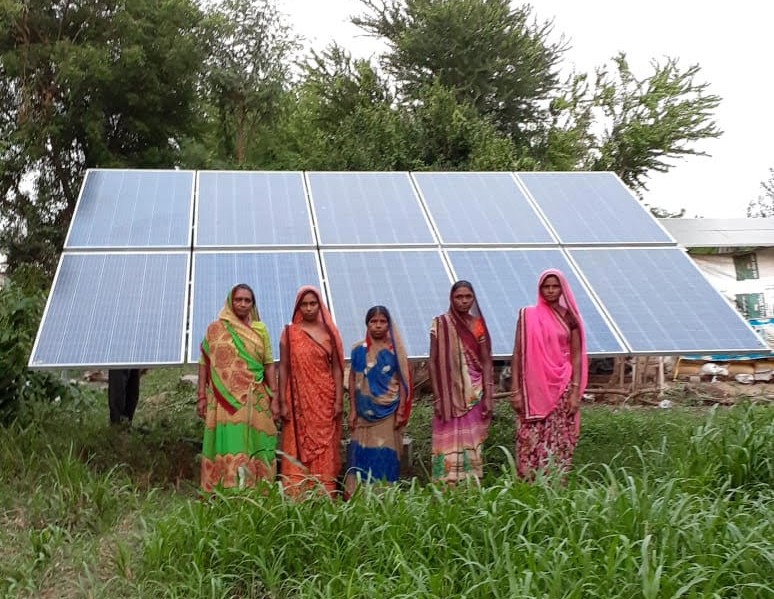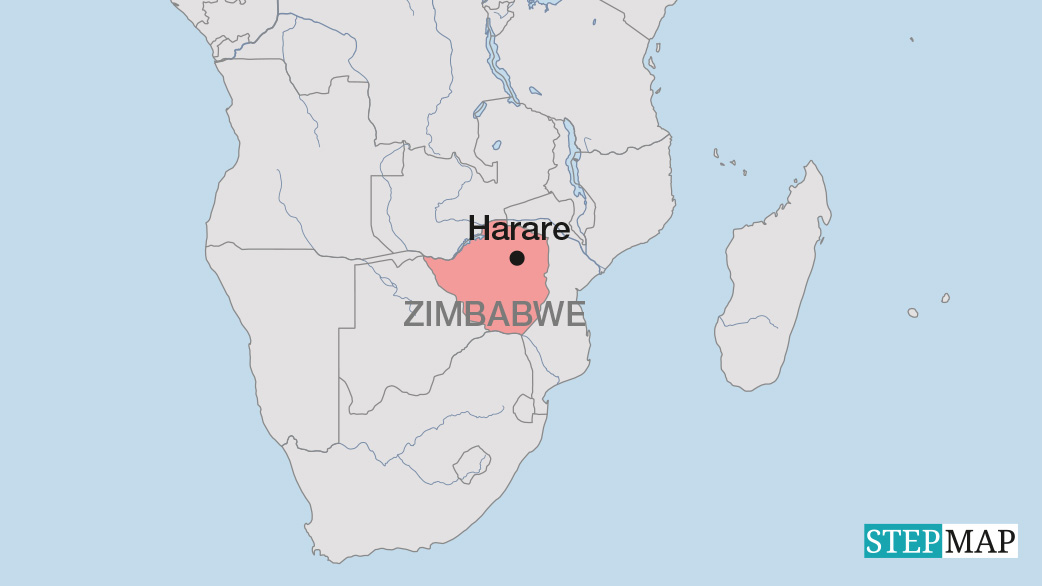Informal sector
Women in India’s informal sector are fighting for better working conditions
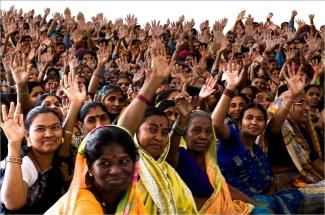
Across India, millions of women start their day before dawn, preparing goods, tending fields or setting up market stalls. They work long hours yet earn barely enough to sustain their families. In India, informal workers make up almost 90 % of the workforce, but despite being the backbone of the economy, they remain invisible and unheard.
As they lack formal recognition, informal workers are excluded from government support such as health insurance and maternity benefits. Formal banks are also very unlikely to lend to them, forcing informal workers in need of financing to turn to exploitative moneylenders. Climate change exacerbates their plight, with floods, irregular monsoons and extreme heat disrupting their livelihoods. They live in an economy where labour is abundant, and employment opportunities are scarce.
But the story of women working in India’s informal sector is not just one of economic hardship – it is a story of courage, resistance, unity and determination. For more than 50 years now, women in India have been teaming up to support each other for more economic security and self-reliance. In 1972, the Self Employed Women’s Association (SEWA) was founded by lawyer and unionist Ela Bhatt. It has become a movement of self-employed women in the informal economy. Today, SEWA has over 3.2 million women members across 18 states in India and a growing grassroots presence in neighbouring Bhutan, Sri Lanka and Nepal. Their goal: to secure their future together, advocating for labour rights, economic empowerment and climate resilience.
The secret of success is collective action
Organising joint action is the driving force behind all SEWA activities. Members come together in collectives based around their professions and geographical locations. As a group of women with similar occupations, they can be more effective in advocating for their rights. They have a louder voice to speak in politics or to request assistance from donors and supporters.
Although SEWA receives some funding from both Indian and international donors, it also relies on the membership fees paid by the women involved. It is the women themselves who decide how the money is spent. SEWA’s local groups identify the issues that are having the greatest impact on their lives and take action accordingly.
The issues addressed by SEWA’s campaigns are as diverse as its membership. Yet every action must align with its overall principles: Initiatives must create or enhance employment opportunities, earnings or asset ownership for women as well as improve their access to essential services like food, healthcare, childcare and sanitation. They must also foster collective strength, leadership, self-reliance or education.
One of SEWA’s recent initiatives was called Pakki Bheet (“solid brick wall”). In August 2024, heavy rainfall caused massive flooding in Gujarat province. Dozens of people died, and tens of thousands of inhabitants had to be evacuated. As many of SEWA’s members had lost their homes, the association set up a support scheme. SEWA made permanent yet affordable housing available for them with one condition: The house should be owned and registered in the name of the respective SEWA member – not in the name of any other male member of the family.
The programme was funded by the state government of Gujarat. SEWA hired architects and construction experts to design the houses and trained the association’s members in masonry, construction, plumbing and carpentry so that they could build their own houses. As a result, the women have built 6000 new houses in the hard-hit districts of Surendranagar and Kutch. Some of the women who took part in the training have now taken up masonry, plumbing or carpentry as a profession and are providing these services in their villages and surrounding areas.
The SEWA community has been campaigning for decades for some form of minimum income for informal workers, as many of them are paid less than the legal minimum. In sectors as diverse as domestic work, agriculture and construction, collective bargaining can establish a fairer baseline. SEWA members also try to collectively influence pricing in local markets or advocate for a minimum piece rate to protect their livelihoods from instability. Furthermore, SEWA members are trying to set up social-security schemes. For example, they have set up cooperatives to provide full-time childcare for factory and agricultural workers. They are staffed by women from their local communities and the costs are subsidised by community donations, grants and government support. In another example, SEWA’s healthcare collectives have set up local centres where local women who have been trained at nearby hospitals in basic healthcare, such as taking blood pressure, temperature and vital signs, offer their services.
Back in 1974, about 4000 SEWA members founded the Shri Mahila SEWA Sahakari Bank aimed at improving access to credit and banking services at attractive rates of interest. Having limited access to formal banking services, informal workers often have to resort to moneylenders who demand extremely high interest rates.
Furthermore, the SEWA community has initiated several women-led enterprises that facilitate market access for self-employed workers. In the 1990s for instance, more than 30,000 women waste pickers in the city of Ahmedabad first formed a local SEWA cooperative and then, in 1995, founded Shri Gitanjali Mahila SEWA Industrial Stationery Producers Cooperative Ltd. Owned and run by its members, the enterprise manufactures stationery products from recycled waste gathered by the collective’s members. Then there is RUDI, an enterprise collectively owned and operated by smallholder farmers who sell their produce through a network of female sales agents.
Today’s most pressing issue: climate action
In 2022, to mark the 50th anniversary of SEWA’s foundation, SEWA members decided to address the recurring impact of climate change on their health, livelihoods, nutrition and welfare and collectively launched the Swacch Aaakash (“clean skies”) campaign. It aims to provide women with opportunities to adapt to and mitigate climate-change impacts. The women began installing green technologies such as biogas plants and cool roofs thanks to the Hariyali Gram (“green villages”) initiative, while the Kheti Jhumbesh (“agriculture”) campaign saw them engage in regenerative farming, soil restoration and the use of organic fertilisers.
They also set up two microinsurance schemes: The Livelihood Recovery and Resilience Fund provides financing solutions for adaptation and mitigation of climate risks, while the Extreme Heat Income Microinsurance compensates insured SEWA members with a day’s wage when temperatures exceed a certain threshold. Both are parametric insurances, meaning that payouts don’t require a claim to be made by the insured. Instead, compensation is paid automatically if, for example, extreme heat persists for two days. Each insured woman contributes a small amount each year – and receives direct cash assistance when temperatures soar or natural disasters strike. SEWA’s insurance programme has grown rapidly: By 2024 it already covered 50,000 informal workers, ranging from farmers to waste recyclers.
Self Employed Women’s Association (SEWA) is a trade union for women working in the informal sector in India.
mail@sewa.org
